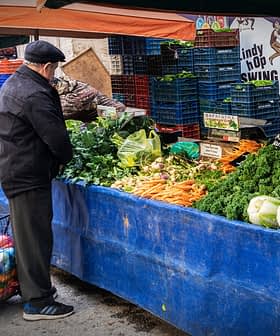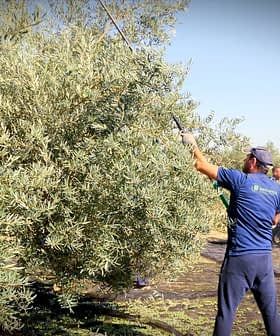The temporary value-added tax (VAT) cut introduced by the Spanish government on olive and all other cooking oils has been seen by many as a positive move.
Proponents hope it will curtail the effects of high inflation on families’ shopping baskets. Still, some observers say the VAT cut will fall short of halting rising olive oil prices in Spain.
Starting January 1st and lasting until June 30th, the VAT of all cooking oils was reduced from 10 to 5 percent. The same reduction has been applied to pasta, while other essential foods such as milk, potatoes, eggs, vegetables, fruit, legumes and bread had their VAT reduced from four to zero percent.
See Also:Olive Council Forecasts Significant Production DeclineFarmers and officials have said that rising production costs, such as energy, fertilizers and logistics, undercut the VAT reduction.
On top of that, olive oil producers highlighted the impact of the tax on non-reusable plastics, which came into force on January 1st, on the sector.
“We would have preferred a zero-VAT, which is applied to other basic foods. In the case of olive oil, such reduction would be justified by the unsatisfactory harvest and other factors which exert a relevant role [on the sector’s costs],” Rafael Sánchez de Puerta, president of the Cooperativas Agroalimentarias in Córdoba and director general of DCOOP, told ABC.
While applauding “any measure that helps curtail prices,” Sánchez de Puerta noted that the government’s VAT cut is unlikely to impact sales significantly, as it does not lower production costs.
Pedro Barato, president of the Interprofessional Organization of Spanish Olive Oil, told Oleorevista that “olive oils are currently subject to enormous tensions on the world markets due to the forecast for a way lower olive oil yield, which is connected to the Mediterranean drought.”
The latest Ministry of Agriculture, Fisheries and Food estimates show that olive oil production in Spain will fall short of 770,000 tons this year, about 50 percent lower than last year’s yield.
Barato also noted that the elimination of VAT would be ideal, considering the many challenges the sector faces.
In a dedicated report, El Mundo noted that the VAT reductions are evenly applied in different areas of the country. It also showed how some food retailers had raised food prices for other staple products not part of the VAT reduction, which undercuts the supposed advantages of the VAT reduction for the Spanish family.
According to the International Olive Council, Spain consumed 587,300 tons of olive oil in the 2021/22 crop year, which makes the country the largest olive oil consumer in the world.
Given the relevance of olive oil in the Spanish household and its spiking prices, Luis Planas, the minister of agriculture, fisheries and food, believes measures must be taken to ensure olive oil does not become too costly for the average Spanish family.








